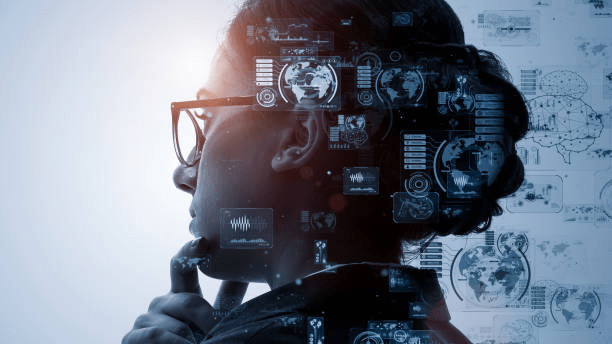Are you curious about the difference between data science and business analytics? Although they have similar jobs, there are fundamental differences between the two fields.
The following article will elaborate on the difference between the two and even give a vivid description of each field and how it is different. So let’s read on to get answers to, “Data science vs. business analytics: Which is for you?”
Data Science or Business Analytics?
The answer is up to you. Which area you choose to pursue should be down to your interests and career ambitions.
If you love project management and analyzing data to help make decisions, a position in business analytics could be for you. If you are more tech-savvy and love coding and programming, you can pursue data science.
What is Data Science?
This area refers to the studying of data utilizing algorithms, technology, and statistics. It is the process of using data to find solutions and predict outcomes for a problem statement.
As a business analyst, a data scientist will also use data and analytics as a means of innovation. Instead of just focusing on business-related issues, data scientists use their skills in various areas, such as technology, academia, and the typical business and finance industries business analysts may work in.

What is Business Analytics?
It will help bridge gaps between business and information technology by utilizing analytics to make data-driven recommendations.
The business section will require deep business insights. On the other hand, the analytics section will involve statistics, data, and computer science knowledge.
Business analytics may include analyzing company data, making forecasts from historical data, optimizing them to improve strategy, or improving data visualization through charts and graphs.
As an expert in the field, you will not only be analyzing all this data, but you will likely have to share your findings with other employees in the company.
You may have to assist them in implementing the changes you are suggesting.

Key Differences
Following are the key differences between business analytics and data science.
Responsibility
Typical responsibilities of data scientists:
- Warehouse engineering and data engineering
- Data mining
- Deep Learning and Machine Learning
- Predictive analytics
- Data Visualization
- Data and Database Management
- Statistical Analysis
- Business Intelligence
- Data Analytics
- And more
Typical responsibilities of business analytics:
- Requirements Elicitation & Analysis
- Solution assessment
- Business Modelling
- Data Analysis
- Workflow Modelling
- And more
Practical Application
Data Science:
- Healthcare
- Fraud Detection
- Operational Efficiency
- Entertainment
Business Analytics
- CRM (Customer Relationship Management)
- Manufacturing
- Marketing
Kind of Data
- Business Analytics
Business Analytics mainly uses structured data. This data is historical business data that allows users to understand the factors that affect their business.
- Data Science
Data science will work with two types of data, including traditional & big data. Traditional data is structured data and data stored in a database.
Big data includes many types of data (such as numbers, text, sounds, images, mobile data, etc.), volumes and velocity (retrieved and calculated in real-time).
Skill
As a data scientist, you need the following core skills:
Statistical analysis: When pursuing this field, it is better to be well versed with statistical tests and likelihood estimators. Thanks to that, you will have a keen sense of pattern and anomaly detection.
Machine learning: You should be proficient in algorithms & statistical models that automatically enable a computer to learn from data.
Computer science & programming: You will encounter enormous datasets as a data scientist. So to explore answers to issues, it is essential to write computer programs and be proficient with computer programming languages like R, Python, SQL, etc.
Data visualization & storytelling: Once you have gotten the data, it is time to present your findings. You will use data visualization tools to describe and communicate actionable insights to both technical and non-technical people.
Multivariable calculus & linear algebra: The mathematical knowledge is essential for creating a machine learning model.

As a business analyst, you need the following core skills:
Interpretation: You will have to clean data and make it useful for interpretation.
Data visualization & storytelling: As a business analyst, you will use visual elements such as graphs, maps, and charts and provide an accessible way to see and understand outliers, patterns, and trends in data.
Mathematical and & statistical skills: It is the ability to collect, interpret and organize numerical data used for modeling, estimation, inference, and forecasting in business analytics.
Analytical reasoning ability: It includes critical thinking, logical reasoning, research communication, and data analysis. You apply predictive and descriptive analytics in situations to solve business problems.
Written & Communication Skills: With good communication skills, it will be easier to influence the management team to recommend improvements and increase opportunities for your business.
Tools
The following are tools used by data scientists:
- SAS
- BigML
- Apache Spark
- D3.js
- Excel
- Tableau
- Matlab
- Tensor Flow
- Jupyter Notebook
- Python
- Natural Language Toolkit
As a business analytic, you will use the following tools:
- Rational Requisite Pro
- Microsoft Office Suite
- SWOT
- Trello
- Pencil
- Balsamiq
- Smart Draw
- Jira
- Google Docs
- Microsoft Visio
- Python
- SAS
- Tableau
Job Opportunities
As a business analyst, you can expect to receive the following positions:
- Data Scientist.
- IT Business Analyst.
- System Analyst.
- Computer science data analyst.
- Business Analytics Manager.
As a data scientist, you can expect to receive the following positions:
As a data science professional, your role is essential in most work areas rather than just technology. The following are typical positions.
- Data Scientist
- Applications Architect
- Machine Learning Engineer
- Data Engineer
- Data Analyst
- BI developer
Conclusion
Hopefully, you have understood the difference between business analytics and data science in detail. Each field has its own advantages, so consider carefully and make a choice based on your passions, interests, and goals.
Thank you for reading!
